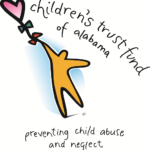In 2022 the Food and Drug Administration (FDA) made a proposal to end menthol cigarette sales due to the fact that the ban could save millions of lives, many of which belong to already disproportionately affected groups.
Menthol is a chemical that is found naturally in peppermint and other plants of a similar variety, but it can also be synthetically produced in a lab. When menthol enters the bloodstream and acts on the brain, it can change the way people experience sensations of pain and taste. For example, when smoking a menthol cigarette, the chemical produces a cooling sensation in the throat and airways, making cigarette smoke feel smoother and easier to inhale.[1]
Menthol is also used in e-cigarettes, cigars, hookah, smokeless tobacco, and nicotine pouches.
Although nicotine is the addictive drug in cigarettes and other tobacco products, menthol has been shown to enhance the effects of nicotine, making tobacco products that contain menthol even more addictive than those that do not. The CDC says that people who smoke menthol cigarettes tend to have a more difficult time quitting than those who smoke non-menthol cigarettes.[1]
Here are 5 ways the U.S. can benefit from a nationwide ban on menthol cigarettes.
1. Make Cigarettes Less Attractive to Youth
Big Tobacco has a dark history of targeting young people in its marketing campaigns, but another way they appeal to young people is by adding menthol to commercial tobacco products. Menthol makes cigarette smoke less harsh, making it easier for a first-time smoker to inhale without coughing, choking, or experiencing throat irritation.
By banning menthol cigarette sales, young people will be less likely to enjoy their first cigarette and less likely to get addicted.
2. Save Lives in Predominantly Black Neighborhoods
In addition to having a reputation for marketing products toward youth, Big Tobacco has also targeted predominantly black neighborhoods in its advertising efforts. This has resulted in tobacco use becoming one of the leading causes of preventable death among Black Americans.
The Truth Initiative explains that Black smokers have a harder time quitting smoking and die at substantially higher rates from tobacco-related diseases. Also, nearly 90% of Black smokers use menthol cigarettes.[2]
According to the American Lung Association, ending the sale of menthol cigarettes would result in almost a quarter of a million Black Americans quitting smoking within 17 months of the ban.[3]
3. Make it Easier to Quit Smoking
Menthol is known to make it easier to start smoking and harder to quit. Since menthol increases the effects of nicotine and is easier to inhale, people who smoke menthol cigarettes may be more likely to smoke more often and get addicted faster than people who smoke non-menthol cigarettes.
At the same time, menthol smokers have a harder time quitting than non-menthol smokers. Removing menthol cigarettes from the market will make fewer people start smoking and make it easier for current smokers to kick the habit.
4. Stop the Cycle of Nicotine Addiction Among LGBTQ+ Youth and Young Adults
People who belong to the LGBTQ+ community face discrimination, mental illness, substance abuse, and other challenges on a regular basis. They have also been one of the communities targeted by Big Tobacco advertising.
LGBTQ+ individuals are more likely to start smoking than their heterosexual counterparts, and more than 36% of LGBTQ+ smokers smoke menthol cigarettes compared to only 29% of heterosexual or straight smokers.[2]
By making it harder to start smoking and easier to quit, removing menthol cigarettes from U.S. stores can give LGBTQ+ individuals the boost they need to quit smoking and prevent LGBTQ+ youth from picking up the habit.
5. Reduce Smoking and Tobacco-Related Deaths Among Women
While less than 1 in 8 women are cigarette smokers, they are nine percent more likely to smoke menthol cigarettes than men. And, while rates of cigarette smoking have declined in recent years, this decline has not been as fast or as substantial in women as it has in men.
The Truth Initiative reports that smoking-related diseases kill more than 200,000 women each year, and many of these lives can be saved by putting a stop to menthol cigarette sales.
Banning Menthol Cigarettes is the Right Decision
For decades, tobacco companies have aggressively targeted young people, racial and ethnic minority groups, and low-income communities. In addition to LGBTQ+ individuals and Black Americans, Native Americans, people experiencing homelessness, and others have had their lives altered due to cigarette smoking. Banning menthol cigarettes is a step toward reducing health inequities and putting an end to the cycle of addiction in these underserved communities.
Menthol cigarette bans work. After a similar ban in England, the country found that the number of youth who smoked menthol cigarettes declined substantially. In Canada, menthol cigarette smokers become more likely to quit smoking than non-menthol cigarette smokers.[4]
The decision to ban menthol cigarettes could stop many people from getting addicted to tobacco products and can save the lives of people in communities that are already hard-hit by tobacco abuse and addiction. The American Medical Association (AMA) along with several other public health agencies has expressed their support behind the FDA’s proposal.[5]
References:
- https://www.cdc.gov/tobacco/basic_information/menthol/index.html
- https://truthinitiative.org/research-resources/traditional-tobacco-products/why-ending-menthol-cigarette-sales-would-benefit
- https://www.lung.org/blog/whats-happening-with-menthol-cigarettes
- https://www.cancer.gov/news-events/cancer-currents-blog/2022/fda-proposes-rule-prohibiting-menthol-cigarettes
- https://www.ama-assn.org/delivering-care/population-care/how-banning-menthol-cigarettes-could-save-6000-black-lives-year








